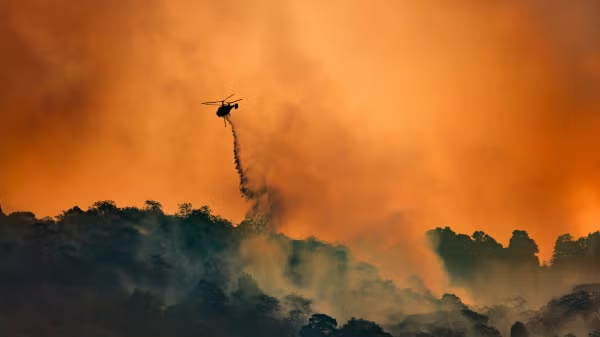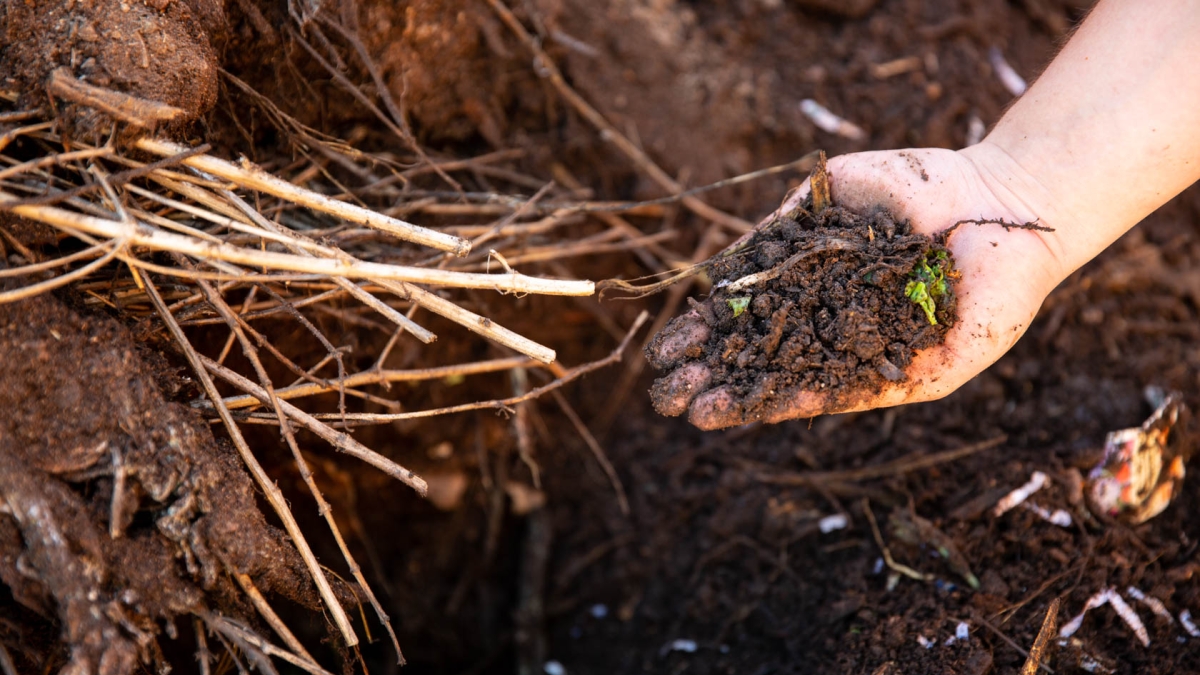Arizona State University continues to create a more sustainable and resilient future — and not just during Earth Month.
The university has implemented a closed-loop process for composting green waste on all campuses.
Video by Ken Fagan/ASU Now
Composting is the act of recycling organic material, plant matter and food scraps. The materials become compost, a finished product that can be used as a soil amendment. Compost provides several benefits:
- Acts as a fertilizer for your landscape.
- Helps your soil become a water filter, reducing runoff and improving water quality.
- Keeps plant diseases and pests away.
- Reduces how much, and how often, you need to water.
ASU Grounds Services, the ASU Zero Waste department and the city of Phoenix participate in the university’s composting process, which supports ASU’s circular resource system sustainability goal.
A circular resource system aims to achieve zero waste by diverting materials from landfills for productive use.
“ASU’s green waste composting program is a great example of a circular economy,” said Josh Ellner, ASU Zero Waste department manager. “Partnering with the city of Phoenix allows ASU to achieve benchmarks regarding our landfill diversion goals by having a large enough local operation to process a large amount of material and also have enough finished product to sell back to ASU Grounds.”
ASU’s green waste — tree trimmings and grass clippings from all campuses — is collected and hauled to a city of Phoenix composting facility where it spends six to eight weeks in the composting process. ASU purchases the finished product to use on flowerbeds, lawns and fields throughout the university.
Video by Ken Fagan/ASU Now
“The compost carries a certain amount of nutrient value on its own, but it also helps to retain water and nutrients,” said Michael Meyer, ASU Grounds Services manager. “The soil in the Valley of the Sun tends to be poor in organic material, and the compost counters that to some degree.”
ASU sent an average of 41.6 tons a month of green and wood waste to be composted in 2018. In November, ASU purchased back 190 yards, about 120,000 pounds, of finished compost that was placed on the Tempe Sun Devil Fitness Complex fields, annual flowerbeds and other campus lawns.
According to Meyer, the composting program supports ASU’s overarching goal to achieve 90% landfill diversion by 2025.
“We do get some satisfaction from knowing that we are keeping material out of the landfill where it would contribute to the production of harmful greenhouse gases. For us, it is truly a win-win situation.”
Top photo: A student sifts a pile of compost at the Polytechnic campus. Photo by Ken Fagan/ASU Now
More Environment and sustainability

From road coatings to a sweating manikin, these ASU research projects are helping Arizonans keep their cool
The heat isn’t going away. And neither are sprawling desert cities like the metro Phoenix area.With new summer records being set nearly every year — 2024 was the warmest year on record for…

New study on Arctic’s ‘Last Ice Area’ highlights the urgency for reducing warming
The Arctic’s “Last Ice Area” — a vital habitat for ice-dependent species — might disappear within a decade after the central Arctic Ocean becomes ice-free during summer, which is expected…

ASU fire expert Stephen Pyne on learning to live alongside fire
Stephen Pyne is having a busy retirement. On top of caring for chickens, sheep and citrus on his urban farm in Queen Creek, Arizona, the Arizona State University professor emeritus is being called on…


